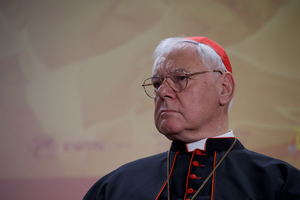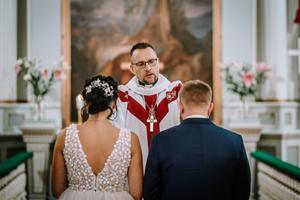Voices and Images From Pope Francis’ Trip to Egypt
Thousands of faithful braved the violence to cheer the Pope.

CAIRO — To Handel’s Hallelujah Chorus, around 15,000 pilgrims gave Pope Francis a rousing welcome when he arrived at Cairo’s Air Defense Stadium to celebrate the only public Mass of his fleeting 27-hour visit to Egypt.
Those who made the effort to attend in the face of significant security risks included not only Catholic Copts but also Coptic Orthodox, Protestants and Muslims.
In his homily (see below), the Pope drew on the message of Easter, stressed the importance of forgiveness, and said it is “true faith” that makes us “more charitable, more merciful, more honest and more humane.”
Those who came to see the Vicar of Christ in this troubled region were grateful for his presence, saying it brought them hope and peace.
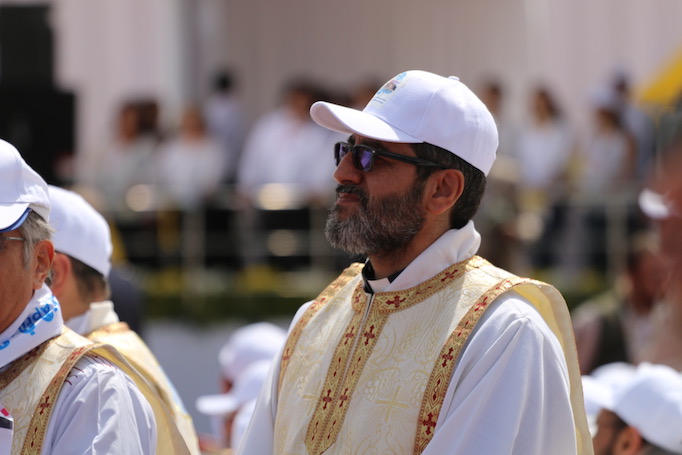
He said he was “very happy” with his speech at Al Azhar university, saying it was a “great message of peace, for our hearts first.” He added that the Egyptian people seemed happy with it, too. “We need hope, we believe in this hope, brought by Pope Francis,” he said.
Samia Zien Elbeden felt acutely the need for peace and hope after her husband, a high ranking general in the Egyptian army, was killed by ISIS last October. “I am a woman who’s husband has been taken away, I am alone. We had no children,” she said. “My husband was everything. He had a high position in the Egyptian army, one of only 12 at that level. I was happy with what the Pope said yesterday, his visit brings me peace and gives me hope.
Amani, an Egyptian TV presenter, said she felt the Pope came to Egypt at a “very critical time all over the world,” especially because the country was the first to stand up to terrorism. She said it was therefore particularly important that Pope Francis visited. “It’s been a great thing to see all Egyptians, Christians and Muslims, come together,” she said.
Amani also said she believed there is a new line being taken “all over the world,” which is to “say and declare that if we are good and non-violent, this is religious, and the other side will be bad.”

Marouan Younis, a Muslim political consultant to the majority party in the Egyptian parliament, said all Egyptians were very pleased to have Pope Francis in Cairo “because we are sending a message of peace around the world, and now he is joining us in this message.”
“We want to build a new country, to have a secularity where everyone in the country can live the same,” he said, adding that Egyptians were entering a new era. “We want to build relations with anyone who wants to be our friend,” he said. “We are really fighting terrorism, a clear fight. We have many problems in our region but we think, we hope and we pray that we succeed in building a new country.”
Younis particularly valued the Pope’s speeches which, he said, “have been fantastic, very clear.”
“He’s been very friendly, just brings hope and love to everybody,” he continued. “He is a really nice guy and a messenger for peace, not just from the Vatican but from God, descending on Cairo just to tell us you’re on the right track and move forward.”

He added: “Many Catholics and Protestants and Orthodox, all friends of mine — I’m Muslim but they’re dear friends — are all happy with the Vatican and Pope Francis. They’re happy, the Muslims are happy, the only ones unhappy are ISIS and the fanatics.”
Younis also revealed that Muslims, Protestants, and other non-Catholics were also present in the crowd. “Yesterday in the prayer meeting we found the three big religious leaders were sitting on the same stage, just praying along with the Vatican, the Pope. I’m very happy with what’s going on,” he said.
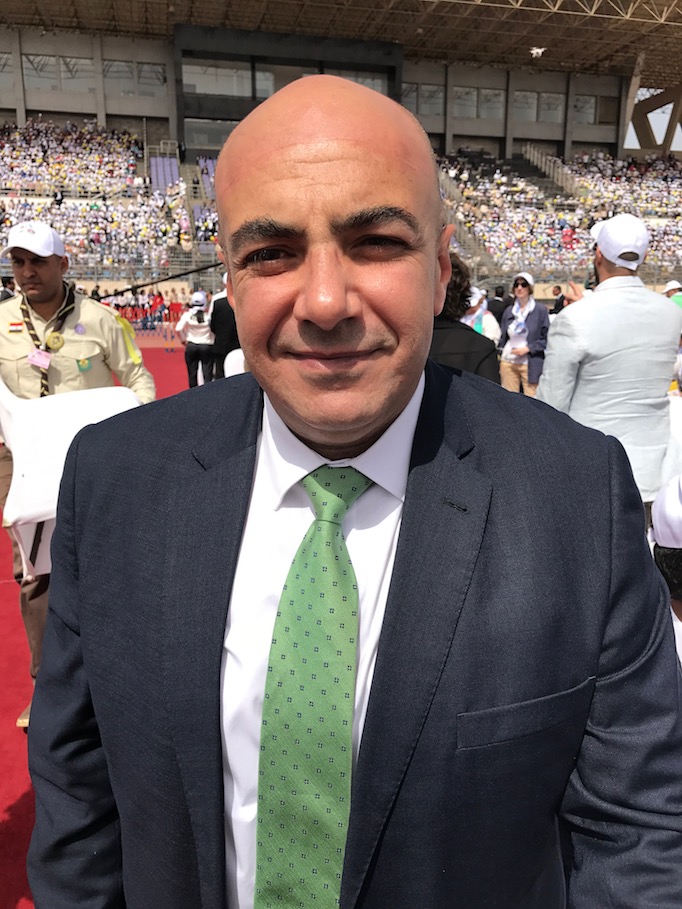
Here below is the text of the Pope’s homily at the Stadium on Sunday:
Peace be with you! Today’s Gospel of the third Sunday of Easter speaks to us of the journey to Emmaus of the two disciples who set out from Jerusalem. It can be summed up in three words: death, resurrection and life.
Death. The two disciples are returning, full of despair and disappointment, to life as usual. The Master is dead and thus it is pointless to hope. They feel disappointment and despair. Theirs is a journey of return, as they leave behind the painful experience of Jesus’ crucifixion. The crisis of the cross, indeed the “scandal” and “foolishness” of the cross (cf. 1 Cor 1:18, 2:2), seems to have buried any hope they had. The one on whom they had built their lives is dead; in his defeat, he brought all their aspirations with him to the tomb.
They could not believe that their Master and Savior, who had raised others from the dead and healed the sick, would end up hanging on the cross of shame. They could not understand why Almighty God had not saved him from such a disgraceful death. The cross of Christ was the cross of their own ideas about God; the death of Christ was the death of what they thought God to be. But in fact, it was they who were dead, buried in the tomb of their limited understanding.
How often do we paralyze ourselves by refusing to transcend our own ideas of God, a god created in the image and likeness of man! How often do we despair by refusing to believe that God’s omnipotence is not one of power and authority, but rather of love, forgiveness and life!
The disciples recognized Jesus in the “breaking of the bread”, in the Eucharist. Unless we tear apart the veil clouding our vision and shatter the hardness of our hearts and our prejudices, we will never be able to recognize the face of God.
Resurrection. In the gloom of their darkest night, at the moment of their greatest despair, Jesus approaches the two disciples and walks at their side, to make them see that he is “the Way, and the Truth and the Life” (Jn 14:6). Jesus turns their despair into life, for when human hope vanishes, divine hope begins to shine in its place. “What is impossible with men is possible with God” (Lk 18:27; cf. 1:37). When we reach the depths of failure and helplessness, when we rid ourselves of the illusion that we are the best, sufficient unto ourselves and the centre of our world, then God reaches out to us to turn our night into dawn, our affliction into joy, our death into resurrection. He turns our steps back to Jerusalem, back to life and to the victory of the Cross (cf. Heb 11:34).
After meeting the Risen Lord, the two disciples returned filled with joy, confidence and enthusiasm, ready to bear witness. The Risen One made them rise from the tomb of their unbelief and their sorrow. Encountering the Lord, crucified and risen, they discovered the meaning and fulfilment of the whole of Scripture, the Law and the Prophets. They discovered the meaning of the apparent defeat of the cross.
Those who do not pass from the experience of the cross to the truth of the resurrection condemn themselves to despair! For we cannot encounter God without first crucifying our narrow notions of a god who reflects only our own understanding of omnipotence and power.
Life. The encounter with the Risen Jesus transformed the lives of those two disciples because meeting the Risen One transforms every life, and makes fruitful what is barren (cf. BENEDICT XVI, General Audience, 11 April 2007). Faith in the resurrection is not a product of the Church, but the Church herself is born of faith in the resurrection. As Saint Paul says: “If Christ has not been raised, then our preaching is in vain and your faith is in vain” (1 Cor 15:14).
The Risen Lord vanished from the sight of the disciples in order to teach us that we cannot hold on to Jesus as he appeared in history: “Blessed are those who believe and yet have not seen” (Jn 21:29; cf. 20:17). The Church needs to know and believe that Jesus lives within her and gives her life in the Eucharist, the scriptures and the sacraments. The disciples on the way to Emmaus realized this, and returned to Jerusalem in order to share their experience with the others: “We have seen the Risen One... Yes, he is truly risen!” (cf. Lk 24:32).
The experience of the disciples on the way to Emmaus teaches us that it is of no use to fill our places of worship if our hearts are empty of the fear of God and of his presence. It is of no use to pray if our prayer to God does not turn into love for our brothers and sisters. All our religiosity means nothing unless it is inspired by deep faith and charity. It is of no use to be concerned about our image, since God looks at the soul and the heart (cf. 1 Sam 16:7) and he detests hypocrisy (cf. Lk 11:37-54; Acts 5:3, 4)1 For God, it is better not to believe than to be a false believer, a hypocrite!
True faith is one that makes us more charitable, more merciful, more honest and more humane. It moves our hearts to love everyone without counting the cost, without distinction and without preference. It makes us see the other not as an enemy to be overcome, but a brother or sister to be loved, served and helped. It spurs us on to spread, defend and live out the culture of encounter, dialogue, respect and fraternity. It gives us the courage to forgive those who have wronged us, to extend a hand to the fallen, to clothe the naked, to feed the hungry, to visit the imprisoned, to help orphans, to give drink to those who thirst, and to come to the aid of the elderly and those in need (cf. Mt 25). True faith leads us to protect the rights of others with the same zeal and enthusiasm with which we defend our own. Indeed, the more we grow in faith and knowledge, the more we grow in humility and in the awareness of our littleness.
Dear brothers and sisters, God is pleased only by a faith that is proclaimed by our lives, for the only fanaticism believers can have is that of charity! Any other fanaticism does not come from God and is not pleasing to him! So now, like the disciples of Emmaus, filled with joy, courage and faith, return to your own Jerusalem, that is, to your daily lives, your families, your work and your beloved country. Do not be afraid to open your hearts to the light of the Risen Lord, and let him transform your uncertainty into a positive force for yourselves and for others. Do not be afraid to love everyone, friends and enemies alike, because the strength and treasure of the believer lies in a life of love! May Our Lady and the Holy Family, who dwelt in this venerable land of yours, enlighten our
hearts and bless you and this beloved country of Egypt, which at the dawn of Christianity welcomed the preaching of Saint Mark, and throughout its history has brought forth so many martyrs and a great multitude of holy men and women.
Al Masih qam! Bi-l-haqiqa qam! - Christ is risen! He is truly risen!
______________
1 Saint Ephraim exclaims: “Just tear off the mask that covers the hypocrite and you will see only corruption” (Sermon). “Woe to them that are of a double heart”, says Ecclesiasticus (2:14, Vulg).
___________________
Some images of the papal trip:
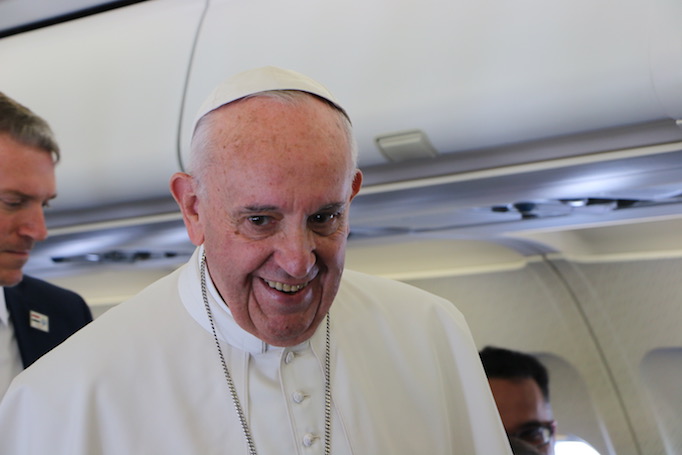
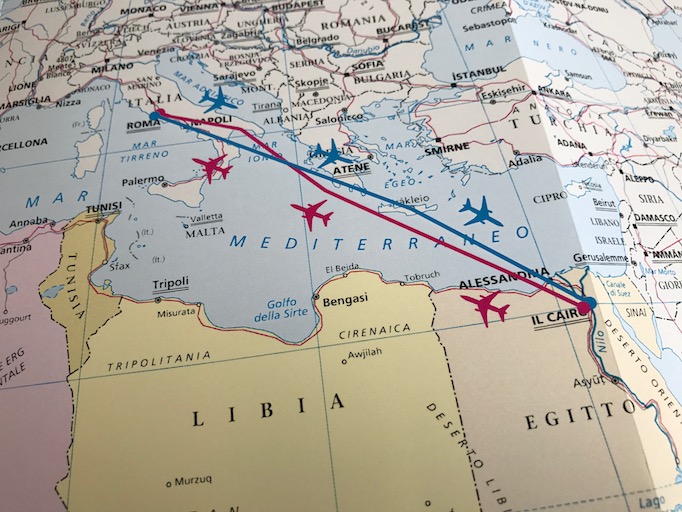
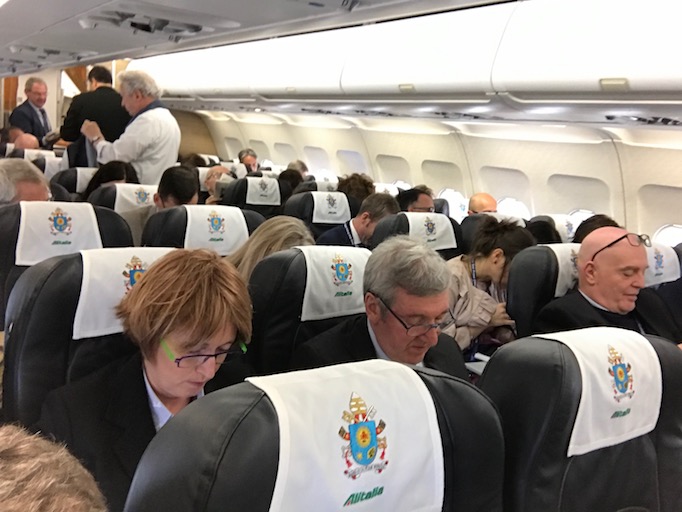
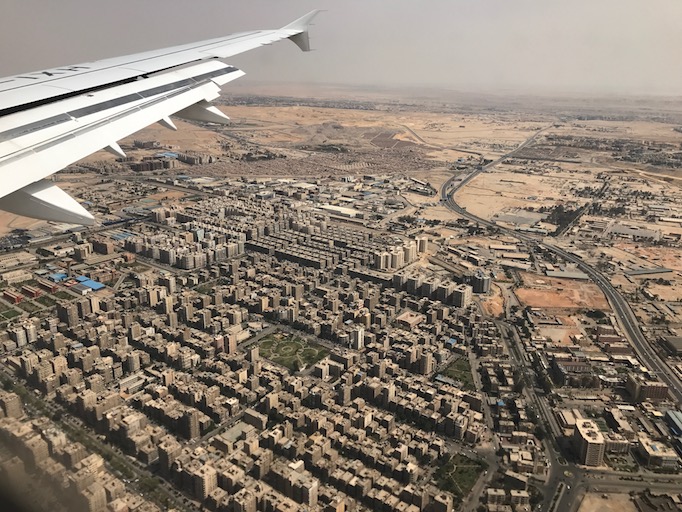

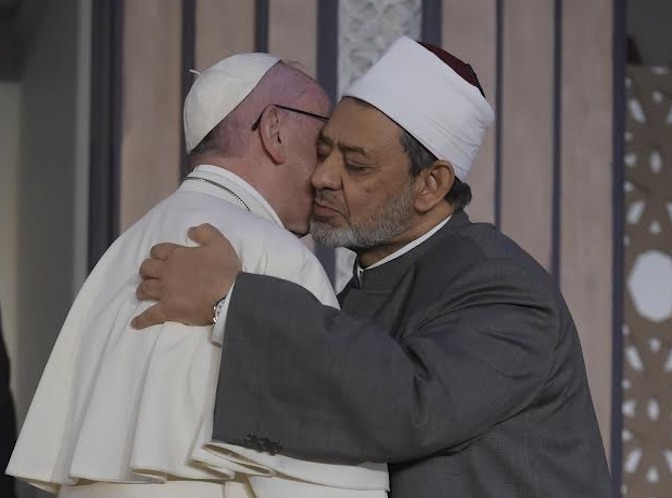
(L'Osservatore Romano)
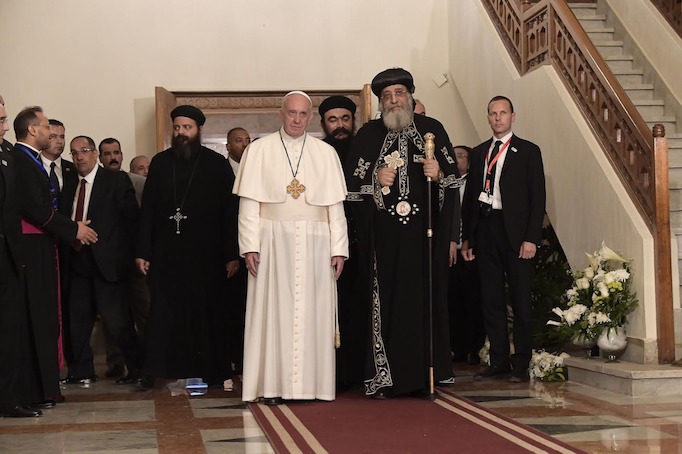
(L'Osservatore Romano)
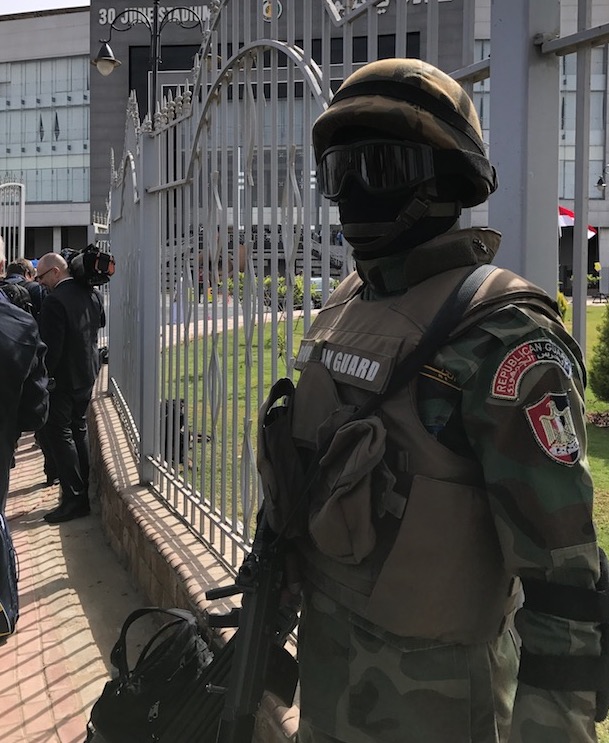
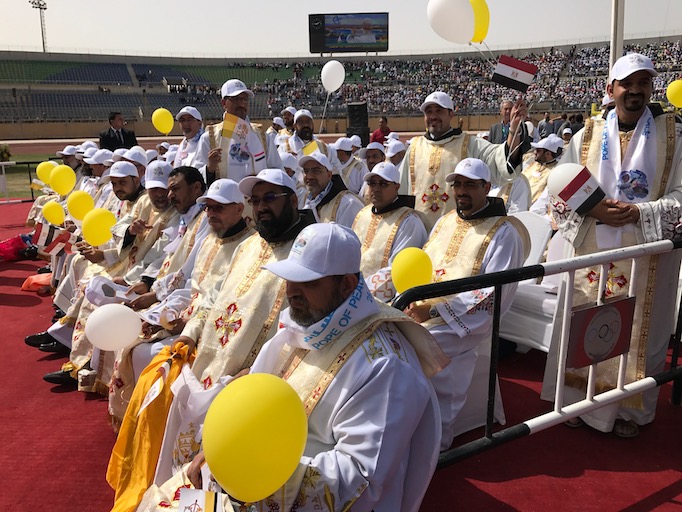
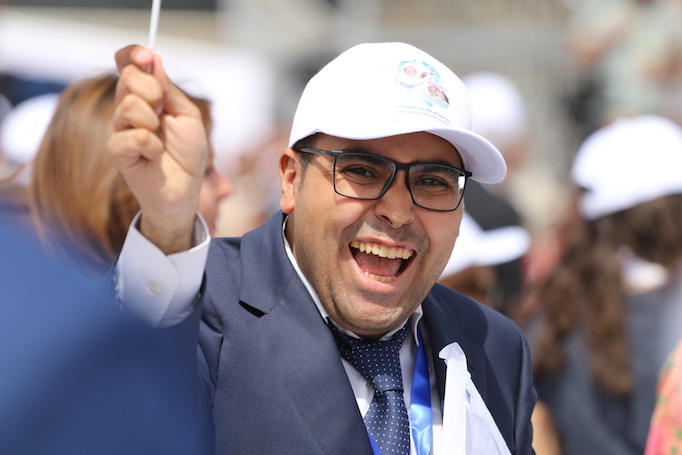
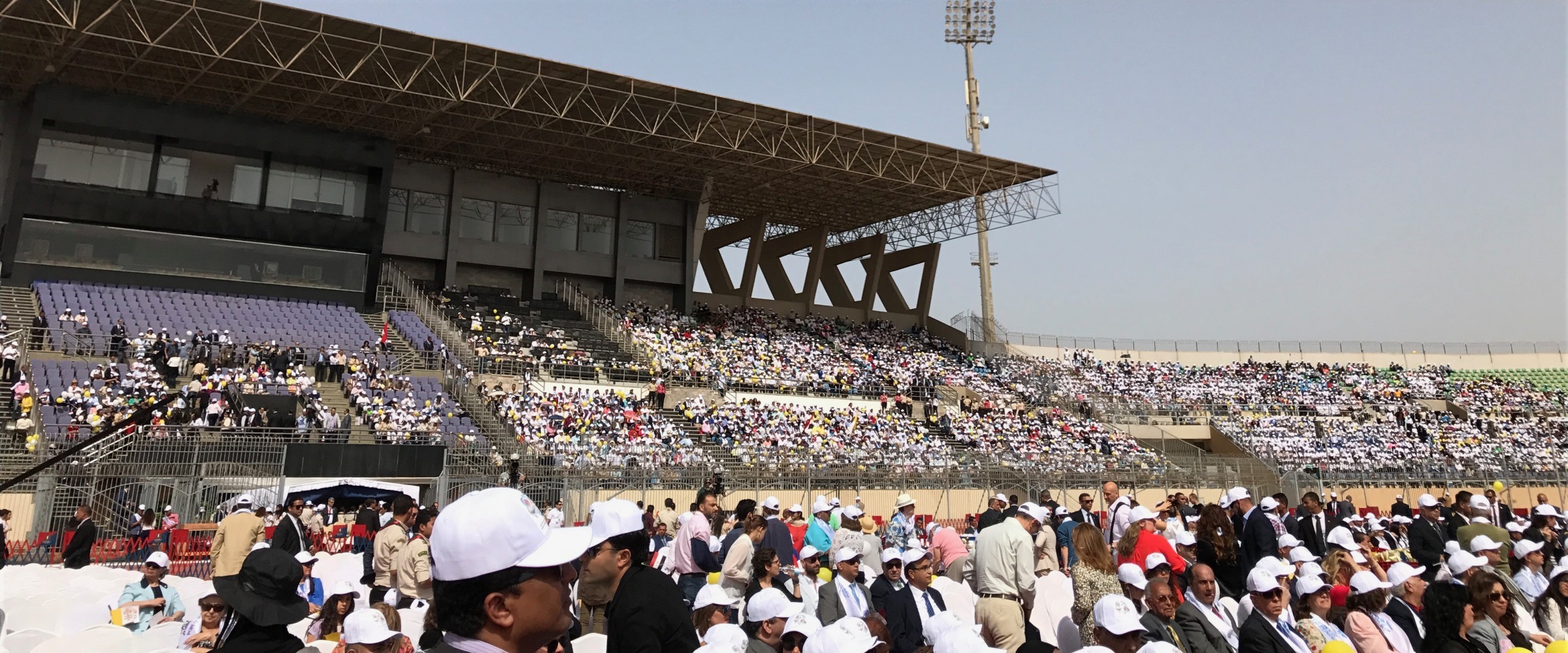
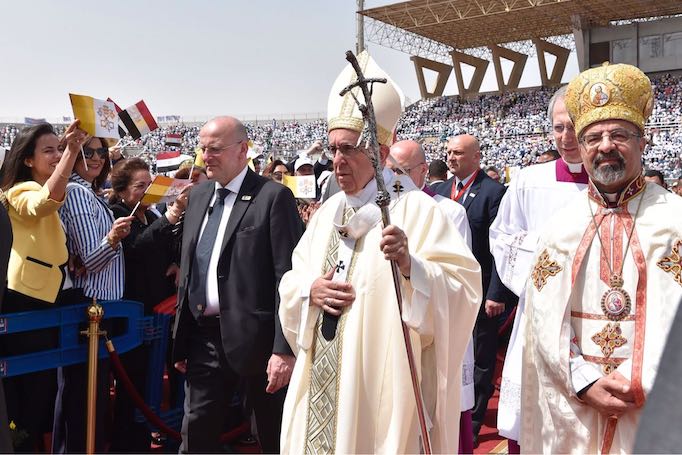
(L'Osservatore Romano)
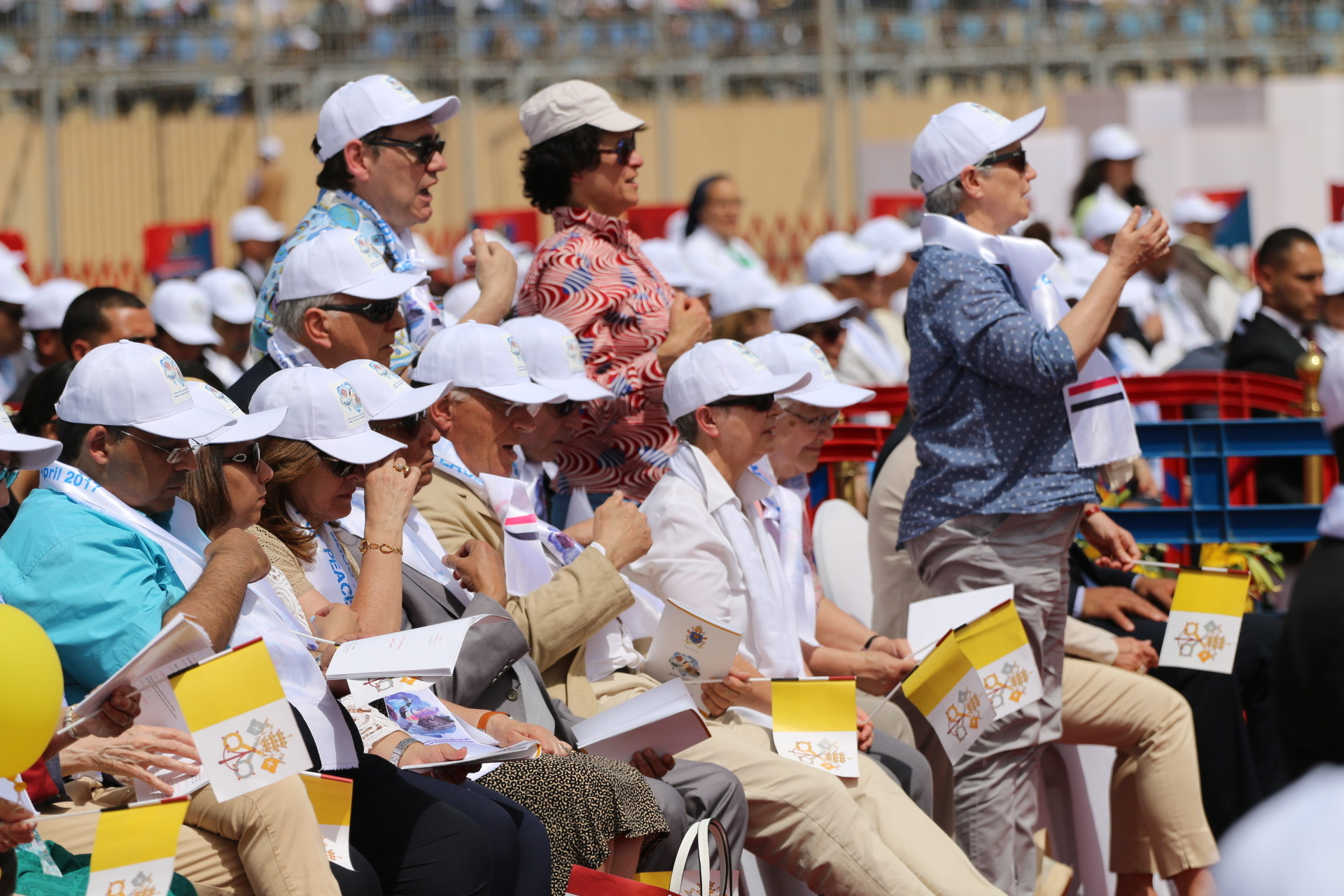
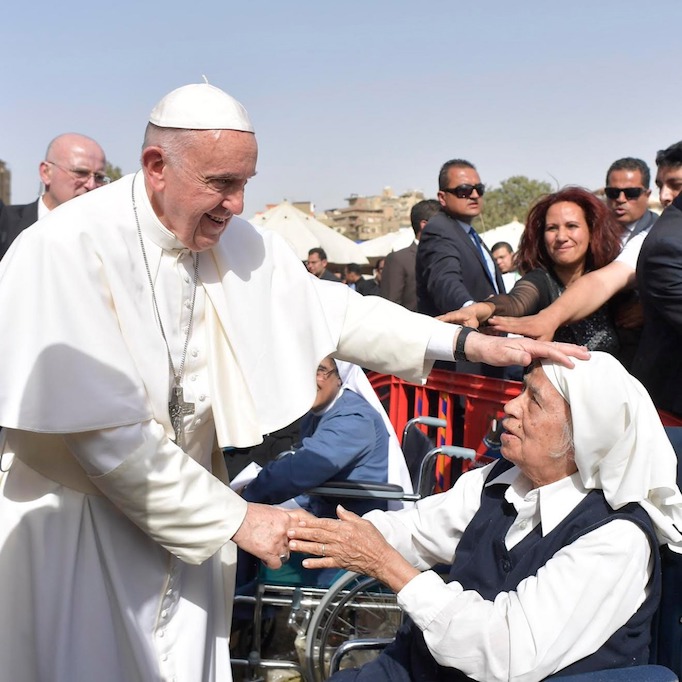
(L'Osservatore Romano)
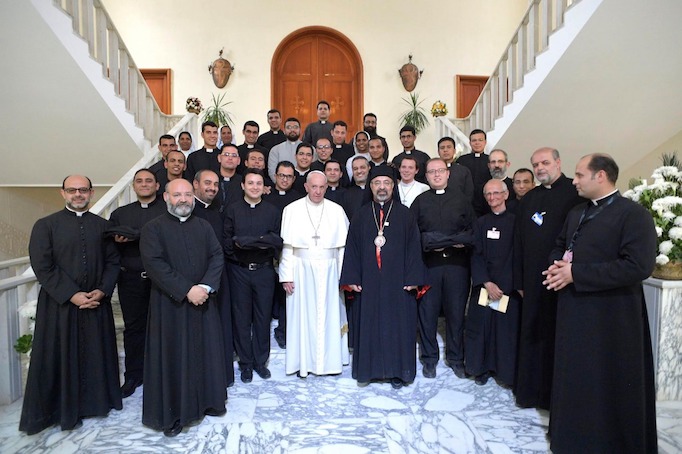
(L'Osservatore Romano)
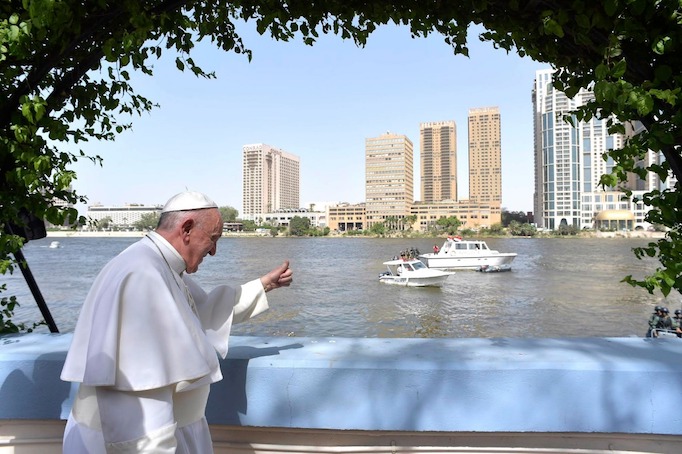
(L'Osservatore Romano)
Photos from top: Jesuit Father Morat; Samia Zien Elbeden; Amani; Marouan Younis (Edward Pentin)
All other photos Edward Pentin unless stated underneath.
- Keywords:
- edward pentin
- pope in egypt








